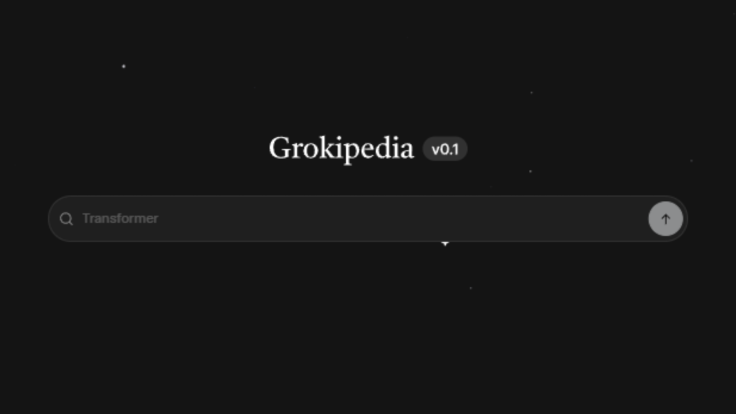Wikipedia Vs. Grokipedia: AI Encyclopedia Describes George Floyd as 'An American With Lengthy Criminal Record'
Is Grokipedia really reliable?

Elon Musk launched Grokipedia on 28 October 2025. His new AI encyclopedia, built by xAI, aims to rival Wikipedia and offer what he called 'the truth, the whole truth and nothing but the truth'. Within hours, it drew sharp reactions online.
Some users praised Grokipedia as a bold step toward unbiased information. Others doubted its reliability and transparency. Musk's announcement on X, formerly Twitter, described it as a work in progress. The platform started with around 885,000 articles compared to Wikipedia's more than eight million. Still, curiosity pushed millions to test it immediately.
Wikipedia Vs. Grokipedia: Users Have Mixed Reactions
Users on X were quick to share their impressions. Dr Kiran J Patel called it a 'game-changer' after testing entries on world leaders. Another user, Adam Lowisz, joked that it might spell 'the end for Wikipedia'.
Elon Musk introduced Grokipedia today.
— Dr. Kiran J Patel (@kiranpatel1977) October 28, 2025
I searched for information on Prime Minister Narendra Modi, and the details were astounding. If this is version 0.1, I can’t wait to see what version 1.0 will bring.
Goodbye, Wikipedia..!!#grokipedia #ElonMusk #NarendraModi… pic.twitter.com/AKU5oIjnlo
Scepticism followed too. Some questioned if Grokipedia merely reused Wikipedia's format with AI-generated tweaks. Vijay, a user who compared both platforms' entries on India's Godhra train burning, noted major differences in tone and content.
Difference between Grokipedia and Wikipedia. @elonmusk is not for free speech or truth. pic.twitter.com/yviS5slM4W
— Daniel Salazar🔸 (@ZanQdo) October 28, 2025
This divided response shows how Musk's new platform challenges the online knowledge ecosystem. Supporters hail it as free from ideology, while critics see potential for machine-generated bias.
Grokipedia Describes George Floyd Differently
A striking comparison emerged when users looked up George Floyd. On Grokipedia, Floyd is described as 'an American man with a lengthy criminal record including convictions for armed robbery, drug possession, and theft in Texas from 1997 to 2007'.
Note the difference between Wikipedia's first paragraph on George Floyd compared to the first paragraph from Grokipedia. The nuance and detail on Grokipedia is FAR superior to Wikipedia and is clearly not pushing any ideologies, unlike Wikipedia. Corrections like this are… pic.twitter.com/NoTnLq2pxe
— Dillon Loomis (@DillonLoomis22) October 28, 2025
It also details his autopsy, noting that his death was a homicide linked to 'cardiopulmonary arrest complicating law enforcement subdual' with contributing health and drug factors.
Wikipedia, by contrast, opens with Floyd's killing in Minneapolis by a white police officer, focusing on racial injustice and the protests that followed. It highlights how his last words, 'I can't breathe', became a global symbol of resistance.
The goal of Grok and https://t.co/op5s4ZikGJ is the truth, the whole truth and nothing but the truth.
— Elon Musk (@elonmusk) October 28, 2025
We will never be perfect, but we shall nonetheless strive towards that goal. https://t.co/j8bJf7c4Hl
This difference quickly became one of the most discussed examples of how Grokipedia's AI frames events. Critics argued that it focused too heavily on criminal records, while Wikipedia emphasised social impact.
5 Key Differences Between Grokipedia and Wikipedia
Though both appear similar at first glance, they differ greatly in purpose and design.
1. Knowledge Creation: AI vs Humans
Wikipedia relies on millions of human editors worldwide. Grokipedia depends mainly on AI, which Musk says reduces bias by focusing on verifiable data.
2. Transparency and Editorial Control
Wikipedia makes every edit public and traceable. Grokipedia hides many of its sources, using a 'fact-checked by Grok' label instead.
3. Structure and Licensing
Wikipedia operates under a non-profit model, allowing open reuse. Grokipedia is owned by Musk's for-profit xAI, with unclear licensing rules.
4. Bias and Ideological Positioning
Wikipedia is often seen as progressive. Grokipedia appears more conservative, particularly in political or criminal cases. Musk argues it simply follows facts, not ideology.
5. Scale and Stage of Development
Wikipedia has over eight million entries. Grokipedia, with less than a million, remains in early testing but Musk promises rapid growth.
What Elon Musk Promises
Musk describes Grokipedia as 'an AI encyclopedia for truth-seekers'. He claimed version 1.0 would be 'ten times better' than the current one.
https://t.co/op5s4ZiSwh version 0.1 is now live.
— Elon Musk (@elonmusk) October 28, 2025
Version 1.0 will be 10X better, but even at 0.1 it’s better than Wikipedia imo.
'We will never be perfect', he said, 'but we shall nonetheless strive towards that goal'.
He insists Grokipedia will be faster, fairer, and less influenced by editorial politics. Wikipedia cofounder Jimmy Wales remains doubtful, warning that AI cannot yet ensure factual accuracy without human oversight.
For now, Grokipedia stands as Musk's latest attempt to reshape how people learn, trust, and challenge information online.
© Copyright IBTimes 2025. All rights reserved.



















